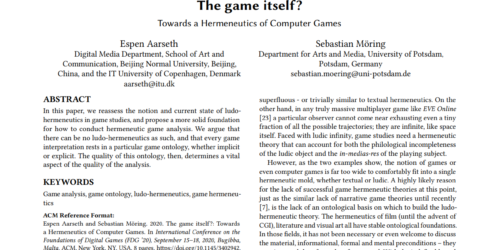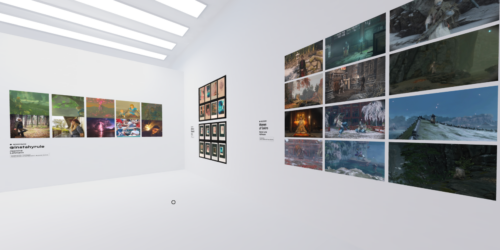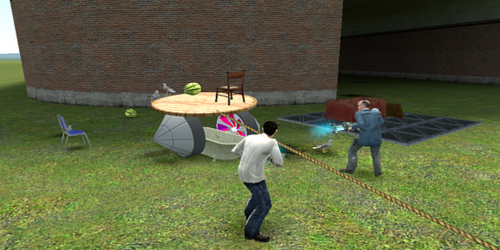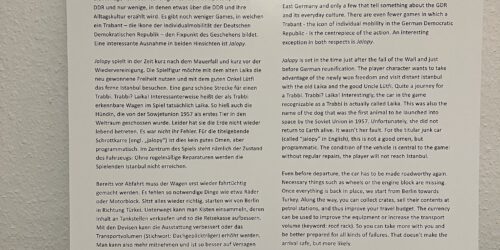Article translated to Portuguese
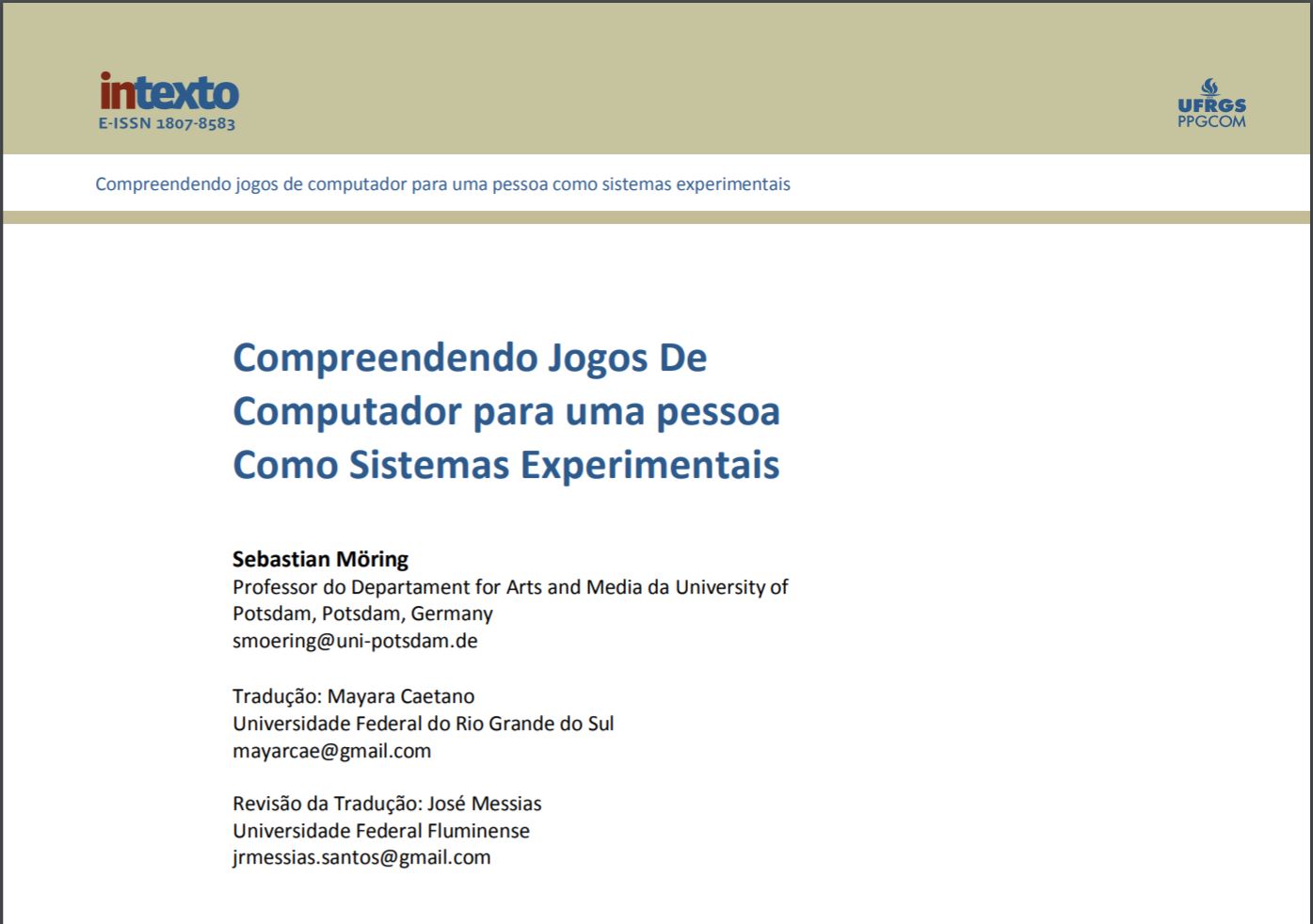
Thanks to the fantastic work of editors Suely Fragoso (Full professor at Faculty of Communication, Federal University of Rio Grande do Sul) and Tomasz Majkowski (Assistant Professor at Department of Literary Anthropology and Cultural Studies at the Faculty of Polish Studies of Jagiellonian University) and translators Mayara Caetano (Universidade Federal do Rio Grande do Sul) and José Messias (Universidade Federal Fluminense) my paper “Understanding Single Player Computer Games as Experimental Systems” was translated to Brasilian Portuguese after I had given it some polishing over the original version. The article is published as open access.
Möring, Sebastian. 2019. Compreendendo Jogos De Computador para uma pessoa Como Sistemas Experimentais. Intexto, No. 46: 255–286. doi:10.19132/1807-8583201946.255-286.
The English abstract of the article reads as follows:
This paper analyzes and theorizes the conditions which allow to understand single player computer game play (SPCGP) as part of a knowledge production practice called experimentation. It therefore draws on Hans-Jörg Rheinberger’s theory of the experimental system (Rheinberger 1997; 1998). This approach is a useful contribution to the field of computer game hermeneutics as it allows to understand game play as a hermeneutic process as well as describing the hermeneutic game play circle in more detail. The paper argues, that so far experimentation in game studies and game hermeneutics has been equated with standard game play processes. In other words, all game play is experimentation. The examples often mentioned in those cases are, however, mere testing devices according to Rheinberger’s theory. In order to be an experimental system, computer games themselves have to be capable of producing true novelties. This depends, on the one hand, on the level of complexity a given game exhibits and, on the other hand, it depends on the degree of creativity of a given player. Eventually the paper suggests that there are only four different cases in which computer games become true generators of surprises and thus qualify as or participate in experimental systems which I will present and discuss: glitches in games which facilitate so-called exploits in SPCGP, sufficiently complex games with a high degree of emergence, the game production process, and computer games which have historically participated in the advancement of science.
The article was published in the special issue “Games e Filosofia” of the academic journal Intexto alongside articles by fantastic colleagues from the field of the philosophy of computer games.
Please find the table of content here: https://seer.ufrgs.br/intexto/issue/view/3754.
I presented the original version at the Philosophy of Computer Games Conference 2016 at the University of Malta. The drafty English version can be downloaded here http://pocg2016.institutedigitalgames.com/site/assets/files/1015/moring_-_experimental_systems.pdf.

